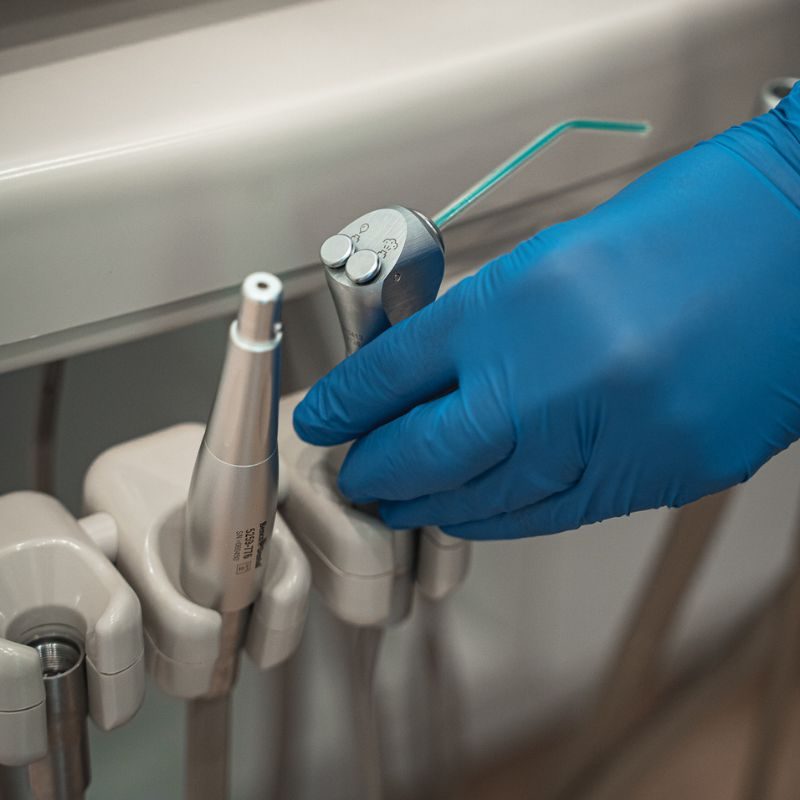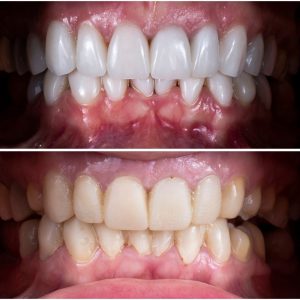A trip to the dentist is a familiar experience for most, but did you know there are many different types of dentists? While your general dentist can handle most of your oral health needs, some situations call for a specialist. The American Dental Association currently recognizes twelve different dental specialties. Each of these specialists undergoes additional years of training after dental school to become an expert in a specific area of dentistry.
This blog post will explore the various types of dentists and what they do, helping you understand who to see for your specific dental needs.
General Dentist: Your Primary Care Provider
A general dentist is your primary care provider for all things dental. They are responsible for the diagnosis, treatment, and management of your overall oral health. Think of them as the family doctor for your mouth. General dentists provide a wide range of services, including:
- Preventive care: This includes regular check-ups, teeth cleanings, and oral cancer screenings. They also educate patients on proper oral hygiene at home.
- Restorative care: General dentists perform common procedures like filling cavities, placing crowns and bridges, and performing root canals.
- Cosmetic procedures: Many general dentists also offer cosmetic services like teeth whitening and veneers.
While general dentists are trained to handle a wide variety of dental issues, they will refer you to a specialist for more complex cases.
Pediatric Dentist: For the Little Smiles
A pediatric dentist, or pedodontist, specializes in the oral health of children from infancy through their teenage years. They have an additional two to three years of training after dental school, focused on the unique dental needs of children.
What does a pediatric dentist do?
Pediatric dentists provide comprehensive oral health care for children, including:
- Infant oral health exams: They assess the risk of cavities in both the child and parents.
- Preventive care: This includes cleanings, fluoride treatments, and sealants to protect young teeth from decay.
- Habit counseling: They can help with issues like thumb sucking and pacifier use.
- Treating dental problems: Pediatric dentists are skilled in treating cavities, dental injuries, and managing gum diseases in children. They are also trained to handle the unique behavioral aspects of treating children, including those with special needs.
Orthodontist: The Alignment Specialist
An orthodontist is a specialist in diagnosing, preventing, and treating dental and facial irregularities. They are experts in correcting misaligned teeth and jaws, often referred to as malocclusions.
What treatments do orthodontists offer?
Orthodontists use a variety of appliances to move teeth and jaws into their correct positions. These include:
- Braces: The most common type of orthodontic treatment.
- Clear aligners: A popular alternative to traditional braces.
- Retainers: Used to hold teeth in their new positions after treatment.
- Palate expanders: Used to widen the upper jaw.
The goal of orthodontic treatment is to improve your bite, which allows you to eat, chew, and speak properly.
Periodontist: The Gum Specialist
A periodontist specializes in the prevention, diagnosis, and treatment of diseases affecting the gums and supporting structures of the teeth. This includes the gums, bone, and ligaments that hold your teeth in place.
When should you see a periodontist?
Your general dentist may refer you to a periodontist if you have:
- Gingivitis: The earliest stage of gum disease.
- Periodontitis: A more advanced form of gum disease that can lead to bone loss.
- Gum recession: When the gums pull back, exposing the tooth’s root.
- Need for dental implants: Periodontists are trained in the placement, maintenance, and repair of dental implants.
Periodontists perform procedures like scaling and root planing (deep cleaning), gum grafts, and dental implant surgery.
Endodontist: The Root Canal Expert
An endodontist is a specialist who deals with the inside of the tooth, specifically the pulp. The pulp contains the nerves, blood vessels, and connective tissue of the tooth.
What is the main procedure an endodontist performs?
The most common procedure performed by an endodontist is a root canal. This treatment is necessary when the pulp becomes inflamed or infected due to deep decay, a cracked tooth, or trauma. During a root canal, the endodontist removes the damaged pulp, cleans and disinfects the inside of the tooth, and then fills and seals it. Endodontists are experts at saving teeth that would otherwise need to be extracted.
Oral and Maxillofacial Surgeon: The Surgical Specialist
An oral and maxillofacial surgeon is a dental specialist who performs surgical procedures on the mouth, jaws, face, and neck. They have extensive training beyond dental school, including a hospital-based residency.
What procedures do oral surgeons perform?
Oral surgeons handle a wide range of surgical procedures, including:
- Complex tooth extractions: This includes the removal of impacted wisdom teeth.
- Dental implant placement: They are experts in the surgical placement of dental implants.
- Corrective jaw surgery: To address issues with the bite and jaw alignment.
- Treatment of facial trauma: They can repair broken facial bones and other injuries.
- Biopsies and removal of tumors: They diagnose and treat oral cancer and other lesions.
Prosthodontist: The Replacement Specialist
A prosthodontist specializes in restoring and replacing missing or damaged teeth. They are often called the “architects of the smile” and are experts in creating natural-looking and functional dental prosthetics.
What are some common prosthodontic treatments?
Prosthodontists are highly trained in a variety of restorative procedures, including:
- Crowns and bridges: To restore damaged teeth or replace missing ones.
- Dentures: Both full and partial dentures to replace multiple missing teeth.
- Dental implants: They are experts in the restoration of dental implants.
- Veneers: To improve the appearance of teeth.
- Treatment of TMJ disorders: They can help with problems related to the jaw joint.
Oral and Maxillofacial Pathologist
An oral and maxillofacial pathologist is a specialist who studies and diagnoses diseases of the mouth and jaw. They use microscopic and clinical examinations to identify the causes, processes, and effects of these diseases. They do not typically treat patients directly but act as consultants for other dentists and physicians.
Oral and Maxillofacial Radiologist
This specialist is trained to interpret dental and facial X-rays and other imaging studies, such as CT scans and MRIs. They are experts in diagnosing diseases and conditions of the head and neck through advanced imaging techniques.
Dental Anesthesiologist
A dental anesthesiologist is a dentist who has completed a residency program in anesthesiology. They are responsible for administering anesthesia and monitoring patients during complex dental procedures, ensuring patient safety and comfort. They work with other types of dentists, like oral surgeons and pediatric dentists.
Orofacial Pain Specialist
An orofacial pain specialist focuses on the diagnosis and management of pain disorders of the jaw, mouth, face, head, and neck. They treat complex chronic pain conditions like temporomandibular joint (TMJ) disorders, nerve pain, and headaches.
Dental Public Health
This specialty focuses on preventing and controlling dental diseases and promoting dental health through organized community efforts. Professionals in this field work on a community-wide basis rather than with individual patients. They are involved in dental health education, research, and program administration.
Cosmetic Dentist: The Smile Enhancer
While not an officially recognized specialty by the ADA, cosmetic dentistry focuses on improving the appearance of your smile. Many general dentists and prosthodontists offer cosmetic procedures.
What procedures does a cosmetic dentist offer?
Cosmetic dentists offer a variety of treatments to enhance your smile, such as:
- Teeth whitening: To brighten your smile.
- Dental bonding: To repair chips, cracks, and gaps in teeth.
- Veneers: Thin shells of porcelain placed over the front of teeth to improve their appearance.
- Gum contouring: To reshape the gum line for a more balanced smile.
Understanding the different types of dentists can help you make informed decisions about your oral health. Whether you need a routine check-up from a general dentist or a specialized procedure from one of the many types of dentists, there is a professional who can meet your needs.







